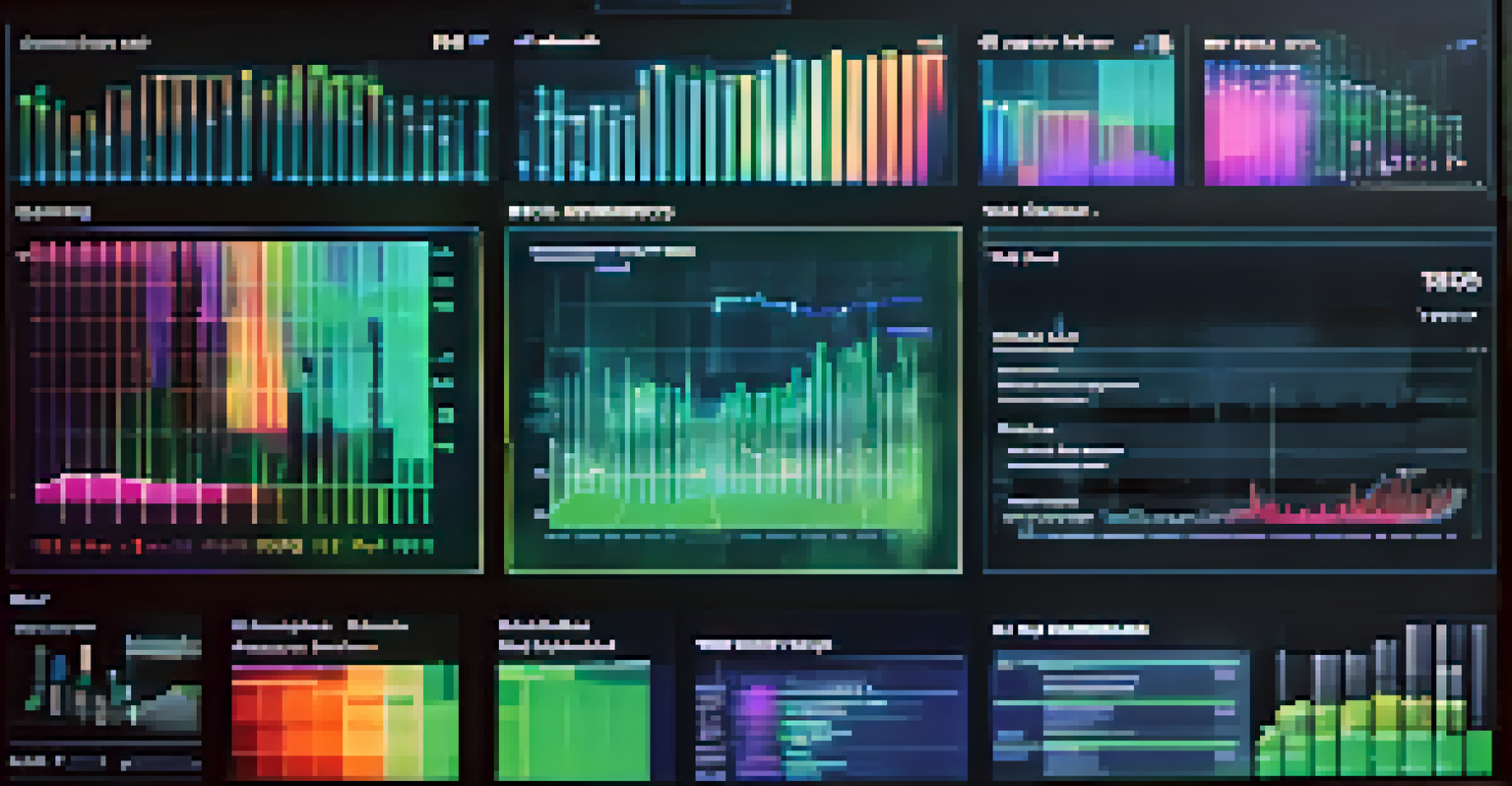Integrating AI and Machine Learning into Digital Strategies

Understanding AI and Machine Learning in Digital Marketing
Artificial Intelligence (AI) and Machine Learning (ML) are transforming digital marketing landscapes. But what exactly are they? AI refers to computer systems that can perform tasks typically requiring human intelligence, while ML is a subset of AI focused on the idea that systems can learn from data and improve over time.
The great thing about AI is that it can help us make better decisions, faster.
Incorporating these technologies can help marketers analyze customer behavior, personalize experiences, and optimize campaigns. For instance, using ML algorithms, businesses can predict which products a customer might buy based on their previous interactions, making marketing efforts much more effective.
Understanding these concepts is crucial for digital strategies today. As the digital world grows more complex, leveraging AI and ML can provide the insights and automation needed to stand out in a crowded marketplace.
Benefits of Integrating AI into Digital Strategies
Integrating AI into digital strategies can lead to numerous benefits, including improved efficiency and enhanced customer experiences. For example, AI can automate routine tasks, allowing teams to focus on more strategic initiatives. This not only saves time but also reduces the chance of human error.

Moreover, AI can analyze vast amounts of data quickly, uncovering patterns and insights that would take humans much longer to identify. This capability enables businesses to make data-driven decisions, optimizing marketing efforts based on real-time data.
AI Enhances Digital Marketing Efforts
Integrating AI and ML streamlines marketing processes, improves efficiency, and enables data-driven decision-making.
Ultimately, the integration of AI can lead to more personalized marketing campaigns, improved customer retention, and higher conversion rates. It's about creating a more tailored approach that resonates with consumers on a deeper level.
Machine Learning: The Heart of Predictive Analytics
Machine Learning plays a pivotal role in predictive analytics, which is essential for anticipating customer needs. By analyzing historical data, ML algorithms can forecast future behaviors and trends. This foresight allows businesses to tailor their marketing strategies proactively rather than reactively.
Data is the new oil, but like oil, it must be refined to be useful.
For instance, an e-commerce site can use ML to recommend products based on a customer's shopping history, enhancing the likelihood of additional sales. This not only improves the shopping experience but also increases revenue potential.
As more businesses adopt predictive analytics, those not leveraging ML risk falling behind. This technology empowers companies to stay ahead of market trends, ensuring they meet customer demands effectively.
AI-Driven Personalization: Enhancing Customer Experience
Personalization has become a buzzword in marketing, and AI-driven personalization takes it to another level. By utilizing AI algorithms, businesses can create highly tailored experiences for their customers. This could mean personalized product recommendations, customized email marketing, or even unique website experiences.
For example, streaming services use AI to analyze viewing habits and recommend shows or movies that align with individual preferences. This level of personalization keeps customers engaged and coming back for more.
Personalization Boosts Customer Loyalty
AI-driven personalization creates tailored experiences that enhance customer satisfaction and foster brand loyalty.
Incorporating AI into personalization strategies not only improves customer satisfaction but also fosters loyalty. When customers feel understood and valued, they are more likely to remain loyal to a brand.
Optimizing Marketing Campaigns with AI and ML
AI and ML can significantly enhance the optimization of marketing campaigns. By analyzing data from various channels, these technologies can identify which strategies are performing well and which need adjustments. This allows marketers to allocate resources more efficiently, maximizing ROI.
For instance, an AI tool might analyze social media engagement metrics to determine the best times to post or which content resonates most with audiences. This insight enables marketers to refine their strategies in real-time, leading to better results.
As marketing becomes more data-driven, the ability to optimize campaigns using AI and ML will be crucial for success. It’s about working smarter, not harder, and making informed decisions based on solid data.
Challenges of AI and ML Integration in Digital Strategies
While the benefits of AI and ML integration are substantial, there are challenges to consider. One major hurdle is the quality of data. For AI and ML algorithms to work effectively, they require large amounts of high-quality data. Without it, predictions can be off-target, leading to misinformed marketing strategies.
Another challenge is the initial investment in technology and expertise. Many businesses may feel overwhelmed by the costs associated with implementing AI and ML solutions. However, it’s essential to view these investments as long-term strategies that can yield significant returns.
Start Small for AI Integration Success
Businesses should begin AI and ML integration with specific goals and the right tools to ensure effective implementation.
Lastly, there's the need for a cultural shift within organizations. Teams must be open to adopting new technologies and methodologies, embracing a data-driven mindset. Overcoming these challenges is essential for successfully integrating AI and ML into digital strategies.
The Future of AI and Machine Learning in Digital Strategies
The future of AI and ML in digital strategies looks promising and is set to evolve rapidly. As technology advances, we can expect even more sophisticated applications of AI, from chatbots providing instant customer support to predictive analytics that foresee market trends.
Moreover, the integration of AI with other emerging technologies, such as the Internet of Things (IoT), is likely to create new opportunities for businesses. For example, smart devices can collect real-time data, allowing companies to tailor their marketing efforts on the spot.

As we move forward, embracing AI and ML will be crucial for businesses looking to stay competitive. Those who adapt and innovate will find themselves at the forefront of the digital landscape.
Getting Started with AI and Machine Learning Integration
For businesses looking to integrate AI and ML into their digital strategies, starting small is key. Begin by identifying specific areas where these technologies can add value, such as customer segmentation or campaign optimization. Setting clear goals will help guide the integration process.
Next, invest in the right tools and technologies that align with your objectives. There are many platforms available that cater to businesses of all sizes, making it easier to find solutions that fit your needs without breaking the bank.
Lastly, foster a culture of learning within your organization. Encourage staff to upskill and embrace the changes that AI and ML bring. By taking these steps, businesses can lay a strong foundation for successful integration and future growth.